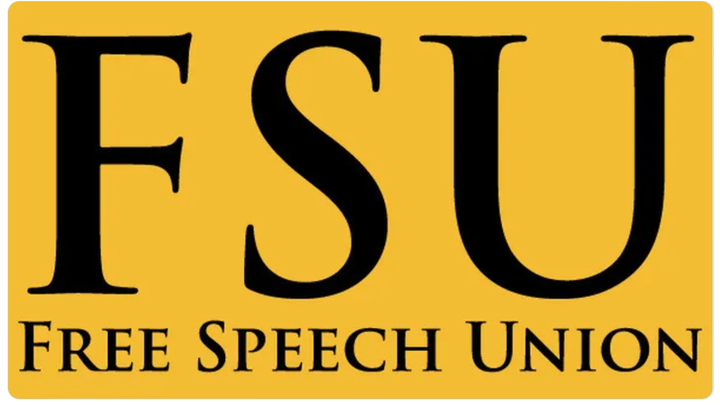
The Free Speech Union Fighting Fund
Donation protected
The Free Speech Union (FSU) is a non-partisan, mass membership public interest body that stands up for the speech rights of its members and campaigns for free speech more widely.
Since the FSU’s formation in 2020 we’ve taken on over 2,500 cases, helping people who’ve been punished for exercising their right to lawful free speech, either in the workplace or the public square – and where these cases have been concluded we’ve achieved a favourable outcome 74% of the time.
The Fighting Fund
Please donate to this crowdfunder to help us keep fighting for free speech in the UK.
Any money you donate will go to the FSU litigation fund to help pay the legal expenses of:
• defending the free speech of our members
• bringing legal cases or commissioning legal advice in defence of free speech
Any money you donate will go towards paying for the best affordable lawyers. We keep costs down by providing in-house legal support and negotiating reduced fees.
We have set a target for July 2024 to April 2025 of £50,000. Any money left over in the fundraiser at the end of this period will be transferred to our general funds.
Our previous FSU Fighting Fund, which ran over four years, raised £119,280.
Recent legal victories
The work we do that makes the headlines is just the tip of the iceberg. But here are a few of our high-profile cases from the past 12 months, all of which depended on the financial support of our donors and members.
• Rail conductor Simon Isherwood was fired from West Midland Trains for asking whether indigenous populations in African countries enjoy ‘black privilege’ during a diversity training session on ‘white privilege’. We took his case to the Employment Tribunal and won him a five-figure settlement.
• We helped secure damages of £800,000 for Carl Borg-Neal, a Lloyds Bank manager who was sacked for asking a diversity trainer whether he should penalise a black employee he was supervising for using the n-word. This was a hypothetical question, and he’d been assured by the trainer beforehand that there was no such thing as a bad question. But he used the n-word himself when posing it and, after being reported to Lloyds by the trainer, he was dismissed for gross misconduct. With our help, Carl took Lloyds to court and won a landmark victory.
• Anna Thomas turned to us when she was fired from the Civil Service for raising the alarm about politically controversial workplace messaging involving Critical Race Theory and gender ideology. With our help, she won a six-figure settlement.
• In a ground-breaking judgment, the Employment Tribunal ruled that former ACAS employee Sean Corby – whom we were supporting – was expressing a legitimate philosophical belief when he challenged Critical Race Theory in his workplace and should not have been penalised for it.
• When Col Dr Kelvin Wright was forced out of the Army after saying “men cannot be women” on Facebook we arranged for him to receive top-drawer legal advice – he’s now been cleared of any wrongdoing by an official inquiry.
• We paid £5,000 towards the defence costs of a group of individuals who were aggressively sued for defamation after posting negative reviews about a plastic surgery clinic. With our help, they won their case.
Strategic interventions
On occasion, the FSU litigates in its own right. In 2021, for instance, we threatened judicial review against the University of Essex and as a result got it to change its harassment policy.
We also intervene in court cases of strategic importance to ensure the right to free speech continues to be recognised by the Courts. For instance, we made submissions to the Supreme Court in Abbasi v Newcastle Upon Tyne Hospitals NHS Foundation Trust, urging it to lift the reporting restrictions on two parents that prevented them from speaking out about medical care that ended in the death of their child. Further Supreme Court interventions in free speech cases are in progress.
Action needed now
The FSU needs your help to keep fighting for free speech. Every legal victory creates a precedent, whether binding or persuasive, that others can then rely on when bringing their own claims.
As George Orwell said, “If liberty means anything at all, it means the right to tell people things they do not want to hear.”
Organiser
The Free Speech Union
Organiser
England